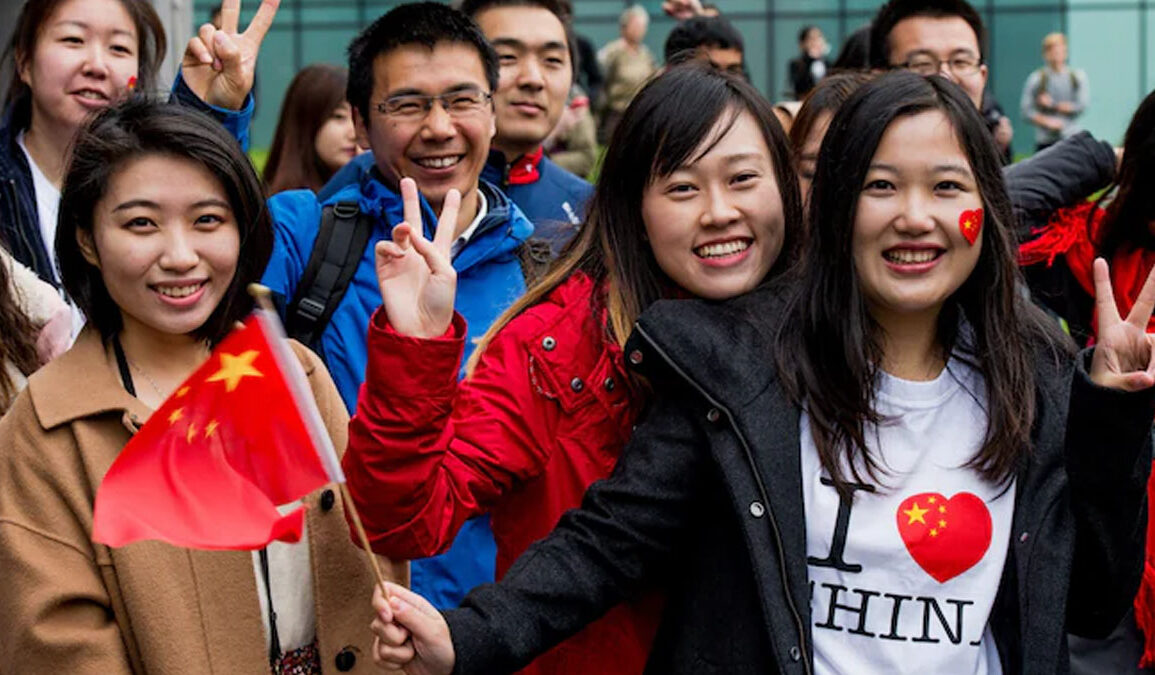A controversial new bill introduced by Representative Riley Moore (R-W.Va.) aims to prohibit all Chinese nationals from receiving student visas to the United States. The legislation, known as the “Stop Chinese Communist Prying by Vindicating Intellectual Safeguards in Academia Act,” or Stop CCP VISAs Act, has already triggered heated debate among lawmakers, educators, and civil rights advocates.
Moore, a freshman Republican congressman, said he introduced the bill to block what he described as a growing risk of espionage and intellectual property theft tied to Chinese students. “Every year we allow nearly 300,000 Chinese nationals to come to the U.S. on student visas. We’ve literally invited the CCP to spy on our military, steal our intellectual property and threaten national security,” Moore said in a public statement. “Congress needs to end China’s exploitation of our student visa program. It’s time we turn off the spigot and immediately ban all student visas going to Chinese nationals.”
What the Bill Proposes
The draft version of Moore’s legislation includes just two pages but would make a major change to U.S. immigration policy. According to the language of the bill, “An alien who is a national of the People’s Republic of China may not be issued a visa or otherwise provided status as a non-immigrant… for the purpose of conducting research or pursuing a course of study.”
The bill has been co-sponsored by several House Republicans, including Brandon Gill of Texas, Addison McDowell of North Carolina, Troy Nehls of Texas, Andy Ogles of Tennessee, and Scott Perry of Pennsylvania. It is not yet formally listed in the congressional bill repository, but Moore posted a draft to his website and linked to a related article by Fox News.
The bill comes in response to concerns that Chinese nationals studying in the U.S. may be working—willingly or under pressure—on behalf of the Chinese Communist Party (CCP). Moore and his colleagues argue that China’s student visa presence has become a gateway for state-sponsored espionage.
Why Moore and Others See a Threat
At the heart of the issue is China’s 2017 National Intelligence Law. The law includes a requirement under Article 7 stating that “All organizations and citizens shall support, assist, and cooperate with national intelligence efforts in accordance with law.” While the text does not clearly define what that cooperation must look like, critics say it effectively gives the Chinese government legal grounds to compel citizens—including those abroad—to share sensitive information.
Although legal analysts point out that the law lacks enforcement mechanisms for refusing to cooperate and that the phrase “in accordance with law” implies some legal limits, the worry remains that Chinese students could still be coerced to aid state intelligence efforts. As one legal review noted, “Ultimately, no matter what the laws say, it would be difficult for any Chinese citizen or company to meaningfully resist a direct request from security forces or law enforcement, and the courts cannot be relied on to provide a remedy.”
Supporters of the bill argue that even if the law is vague, the threat is real. They cite a number of specific incidents involving Chinese nationals who were charged or convicted of spying or gathering information while on student visas in the U.S.
One case involved Fengyun Shi, a graduate student at the University of Minnesota, who was sentenced to six months in prison after pleading guilty to taking unauthorized drone footage of military defense sites in Virginia. In another case, five Chinese students from the University of Michigan were caught observing a National Guard training exercise in 2023. And Ji Chaoqun, who came to the U.S. in 2014 to study at the Illinois Institute of Technology, was sentenced in 2023 to eight years in prison for acting as a foreign agent of China’s Ministry of State Security.
Representative Brandon Gill stated, “The Chinese Communist Party is fundamentally opposed to our American values, and yet we have handed out hundreds of thousands of student visas to Chinese nationals, many of whom are state-sponsored spies.”
Critics Warn of Overreach and Discrimination
Despite concerns about espionage, many critics say the proposed law goes too far. Education leaders and civil rights groups argue that banning all Chinese nationals from obtaining student visas is discriminatory and based on a broad assumption that all Chinese students pose a security risk.
John C. Yang, president of Asian Americans Advancing Justice, warned, “While national security is of utmost importance to Americans, resorting to racism and xenophobia is never the answer. The overwhelming majority of students and scholars simply come here to learn.”
Yang added, “History has shown us time and again that exclusionary policies based on stereotyping rarely address actual national security concerns—instead they fuel prejudice, division and unfair targeting of Asian immigrants and the Asian American community more broadly.”
Shaun Carver, the CEO of UC Berkeley’s International House, also opposed the bill, pointing out that the actual number of espionage cases is very low. “The data shows only 0.0017% of Chinese students were implicated in espionage activities last year,” he said. “We should take a more targeted approach to address legitimate concerns while preserving the academic and economic benefits these students bring.”
Carver also warned that removing Chinese students could hurt American universities. In 2023 alone, international students contributed nearly $50 billion to the U.S. economy, and Chinese students made up about one-fourth of all new international enrollments.
Eddie West, an international affairs officer at California State University, Fresno, said, “Conceiving of China as an adversary, full stop, does a huge disservice to the importance of collaboration between our two countries. We have far more to gain by partnership than by exclusion.”
Potential Fallout and Global Consequences
Some education experts worry that even the introduction of the bill could discourage Chinese students from applying to U.S. schools. As West noted, “Students are likely to turn to the UK and Europe as alternative study destinations.” Losing Chinese students, who often pay higher tuition rates than domestic students, could financially hurt American universities and reduce research output, cultural exchange, and diversity.
Ben Waxman, CEO of the academic consultancy Intead, criticized the broad scope of the bill and compared it to punishing all members of Congress because a few were charged with crimes. “Of the 535 elected officials in Congress, about 1% were convicted of felonies. Would it be appropriate to dissolve Congress for that reason?” he asked. “Of the 300,000+ Chinese students in the U.S., only 10 were charged with any serious violation. That’s 0.003%. Should we punish them all?”
Some policy experts believe that current visa screening measures already allow for targeted national security protections. Under Presidential Proclamation 10043, the U.S. already denies visas to Chinese graduate students with ties to military-affiliated institutions, even without additional evidence of wrongdoing.
West added that better alternatives exist. “The U.S. could adopt a system like the UK’s compliance framework or Australia’s PRISMS system, both of which rely on universities to monitor students and report problems in real time,” he said.
A Debate with Broader Implications
While Moore’s bill is still in its early stages and faces a long path before it could become law, the debate surrounding it reflects broader tensions in U.S.-China relations. As China continues to expand its global influence, questions about how to protect national security without undermining American values remain at the center of the conversation.
“Misuse of the Student Visa route to come to the U.S. by individuals with no true intent to study here is more common than some folks in our profession are eager to acknowledge,” said West. “But blanket policies that target everyone based on nationality are not the answer.”
NP Editor: This may seem unfair to the poor students, but this is a serious national security problem. A law requiring participation is a serious motivator, especially since the Chinese Communist Party does not hesitate to threaten the families of those who refuse to act. Add to this that there is likely a financial incentive for success and you have an army of 300,000 spies stealing any and all science from our Universities.








